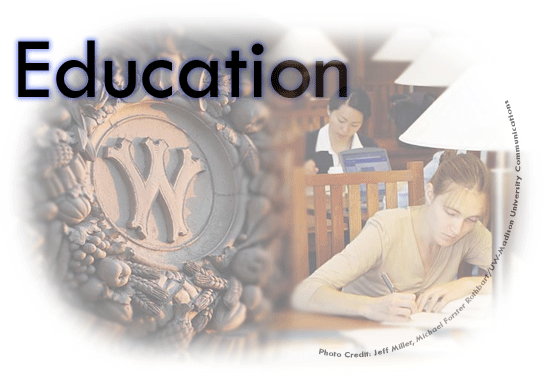Whether you are just graduating from high school and you are wondering whether to continue, or you are considering returning to school for additional training, you may be wondering what increased education is worth. According to FinAid, a public service site that helps students figure out their financial situations, you can expect tuition rates to increase at roughly twice the rate of the current inflation. With this rather intimidating figure looming in your mind, you will find that there are a number of considerations to make when you are thinking about the value of an education might be.
Certification
In the first place, choosing the right form of education will give you the paper proof that you need to get certain jobs. For example, there is an alarming increase of jobs for which a college degree is required. In response to this, more and more people are looking to online higher education institutions to help them get the paperwork that they need. On top of that, however, there are also certifications that result from attending a training academy or a trade school. You may choose to further your education in very specific areas. If you wish to work in industry or manufacturing, certifications that qualify you to run certain machines or to oversee certain procedures can be well worth the expense that they were to get.

Relevance
A valuable education is one that is relevant to your career plans. For example, very few people would say that a medical degree is wasted, but if you cannot cope with the stress of being a doctor and you are uninterested in medical research, it might be a wasted degree for you. However, it is also important to consider the fact that you never know what might be relevant to you in the future. A simple programming class that you take for fun might open you up to an entirely new field, or you might find that a history degree opens you up to education or research.
Need
There are some careers for which a standard college education is unnecessary. For example, consider art. While there are some colleges which are dedicated to launching the career of their art students, other colleges are simply less invested. Not only does an artist need to produce quality work, he or she also needs to know how to draft a contract, how to price their work and how to freelance in general. A school will not necessarily teach an artist these things, and he or she might be better off seeking an apprenticeship or simply working on their craft as they learn through other media.
Exploration
One thing that higher education does allow is the ability to explore. A standard bachelor’s degree typically expects the student to put some time into general education, that is, classes that are intended to give them a certain amount of grounding. General education classes vary from field to field and from college to college, but in many ways, they can take a student outside of their comfort level. A student might be brought into contact with a field that they have never considered before, and this can change their life. At the very least, higher education will give students a greater context for the things that they have experienced.
Networking
For many people, higher education gives them a chance to come in contact with people outside of their common experience. Because of this, it is a natural networking opportunity, and it can be incredibly valuable given the right circumstances. The old adage states that it is all about who you know, but it is easier than you might think to get to know someone. Many people are natural networkers; for example, it is very easy for someone to pass on a name or a service that they have kept in their minds. Networking is especially important in the legal fields, as this is a way that many people get their first jobs.
Experience
Increased education, no matter what the field, gives people more experiences, and this alone can make it valuable. Many of the people entering higher education have never lived away from home or managed their own lives. The experience of scheduling for classes, of arranging to do work and balancing school as well as job can be invaluable to them later on. There are many life skills that can be learned when you are attending a college or a university.
If you are considering returning to school or continuing your education, take a few minutes to think about why you want to go and what you might get out of it. Increased education and training is an investment, and as time goes on, it is becoming an increasingly expensive investment. Take a few moments to learn about what it might mean for you!
Junior Achievement Colorado is a nonprofit specializing in the furthering of financial literacy in children in Colorado. Volunteer today to help a child become more business savvy through entrepreneurship programs today.

